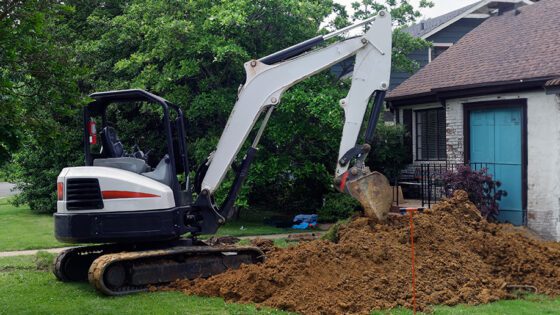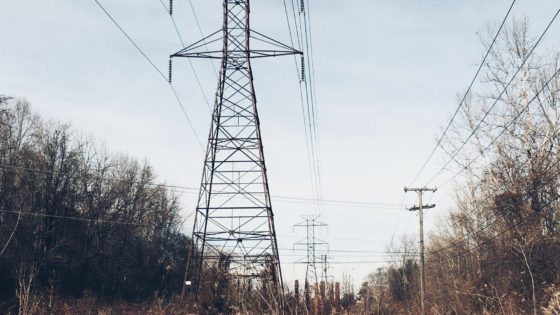Condemnation is the process of taking private property under the power of eminent domain for public use. However, the government cannot just take your land. The law requires that the government pay you just compensation in an eminent domain taking. Just compensation is the difference between the fair market value of your property before the taking, minus the fair market value of your property after the taking. How “fair market value” is determined is usually a matter of interpretation, and it is often at the center of legal disputes over eminent domain.
The N.C. Department of Transportation (NCDOT), or another condemning authority, will commission an appraisal of your property to determine its value and the just compensation it thinks you deserve.
There are several reasons why the NCDOT appraisal may not be an accurate reflection of the fair-market value of your property. In this article, we will explain in more detail what a condemnation appraisal is, how it is done, and what to watch out for.
What is a condemnation appraisal?
A condemnation appraisal is an estimate of the value of your property, which includes the value both before and after the acquisition occurs. Appraisers are supposed to consider its highest and best use, as well as any damages you may experience to the remaining property. In our experience, NCDOT’s appraisers often underestimate the highest and best use as well as the underlying value of the property.
Real-estate valuation is based on data and opinion. Two appraisers will seldom agree on valuation.
How is a condemnation appraisal done?
There are three common methods used to determine fair market value. More than one approach may be used in the condemnation appraisal to reinforce the valuation conclusion.
- Sales Comparison Approach (also known as the Market Data Approach) – This method is mostly used to appraise standard residential properties and uses a comparison of recent sales of similar properties in the market area to determine a value accounting for specific differences, such as location, size, time, and access.
- Income Approach (also known as the Income Capitalization Approach) – This method is used to value income-producing properties by deriving a valuation using the net operating income and an appropriate capitalization rate.
- Cost Approach – This method is typically used to evaluate unique or special-use properties by adding the value of the land and the depreciated improvement value.
An experienced eminent domain attorney can explain these methodologies in more detail and can also help you understand if the appropriate approaches were used in your property’s appraisal.
Who is the condemnation appraiser?
Condemnation appraisers are hired by the government to value your property. Note: The appraiser works for the government, not for you. Sometimes, it may be in your best interest to have an independent appraiser value your property as well, if you feel that the condemnation appraiser’s valuation is inaccurate. But getting your own appraisal, without the guidance of a condemnation attorney, can also hurt your case.
An experienced eminent domain attorney can help you determine if you need an independent appraisal, and if so, can help you find a professional appraiser. Sound expensive? Don’t worry. At the NC Eminent Domain Law Firm, we front all costs, including the cost of independent appraisals. We also guarantee that you’ll pay nothing if we don’t get you more than the government’s offer. Call 1-877-393-4990 for a free case evaluation.
 Will a condemnation appraiser give me a fair valuation?
Will a condemnation appraiser give me a fair valuation?
Though eminent domain law states that it is the government’s responsibility to offer you a fair market value for your property, it has been our experience that appraisers working for the NCDOT or other government agencies often arrive at valuations that are less than fair market value.
Like other buyers, the government will probably want to buy your property for as little as possible. In some cases, the NCDOT may start off with a below-market offer and slowly escalate its offers. Getting fair compensation for your property is your legal right. We believe it is in most property owners’ best interest to speak with an eminent domain attorney as soon as they are notified by the government that they intend to take the property.
What are potential issues with an appraisal?
Appraisals play a pivotal role in the determination of your compensation, so we’d like to point out a few issues to look out for in the government’s condemnation appraisal of your property.
Remainder Property Valuation
If the government only wants to take part of your property, the appraisal needs to take into consideration any damage to the “remainder” portion of your property, as well as the portion that is taken.
Here are two different theoretical examples and one real-life example of this:
- If the NCDOT takes the front 1 acre of a 10-acre property to build a highway, and also eliminates all access through that 1 acre, which was the only access to the property, the remainder property is left without access and has lost significant value. The appraisal should include the damages to the 9 acres caused by the denial of access, in addition to the 1 acre that it was physically impacted.
- If the government takes 20 acres of a 100-acre farm for a project, it must pay the value for those 20 acres, and must also pay for any damages done to the remaining land. Those 20 acres may have contained the water source for that farm, so losing those acres may mean the farm can no longer operate the way it did before. The NCDOT appraisal should include the impact on the additional 80 acres.
- We represented a homeowner who received an original offer of under $4,000 and reached a final settlement of over $170,000. In that case, a new 6-lane bypass was being built along the side of the property coming to within 10 feet of a barn and 110 feet of the home on the property. Despite the changes brought on by the project, the government’s appraiser did not include any damages to the remaining property in their appraisal report.1
Appraiser’s knowledge of the market
It is important to consider the highest and best use of your property before taking, so the appraiser must fully comprehend what the market is for your land.
In most cases, people sell their property with the expectation of similar use – or put simply, a home will be sold to be used as a home, and a business as a business. However, if a home is on a prime piece of real estate, it may actually sell for much more to someone interested in using the land for a high-rise condo or an industrial plant. This would be the highest and best use of the property. And this too, should be included in your eminent domain appraisal.
Other issues often overlooked
Other mistakes or omissions sometimes made in condemnation appraisals include:
- Explanation of the property’s uses is incomplete.
- Use of poor comparable sales.
- All improvements are not valued.
- Value of fixtures or equipment is not included.
- Important features or amenities are not accounted for (such as a beachfront location).
- Damages to the remainder are not fully accounted for.
How can a condemnation lawyer help me?
A qualified condemnation lawyer can give you advice and help you obtain information from experienced professionals, such as appraisers, realtors, environmentalists, surveyors, civil engineers, and land planners. Each of these experts can offer an independent evaluation of your property and, if applicable, help your attorney make the case for why you deserve more compensation.
If you have recently learned that your property is scheduled to be taken for an eminent domain project, I encourage you to contact the NC Eminent Domain Law Firm at 1-877-393-4990. We can help you protect your legal rights and fight for the full compensation that you may deserve for your property. Contact us today for a free evaluation of your case.

 Will a condemnation appraiser give me a fair valuation?
Will a condemnation appraiser give me a fair valuation?

